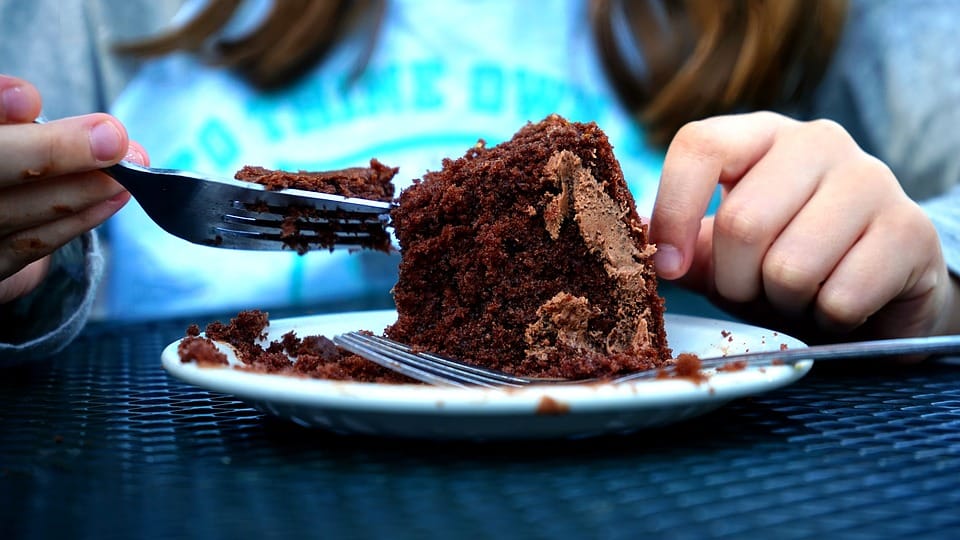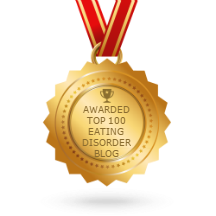- Home
- About
-
Services
- Therapy
-
Eating Disorder Trainings
>
- Clinical Approaches To Treating Body Image Issues
- Clinical Approaches To Treating Bulimia & Binge Eating Disorder
- Finding Freedom From Binge Eating
- Finding Freedom From Anorexia
- Supporting A Loved One With An Eating Disorder
- Eating Disorder Recovery Road Map
- Healing From Body Hate And Practicing Self-Compassion
- Common Questions
- Blog
- Press
- Contact
|
An important part of recovery from an eating disorder is gradually challenging any “food fears.” For many people in recovery this task can seem incredibly daunting-and it may be difficult to know where to start. Some people may put this challenge off by telling themselves that they will face these foods, when they are feeling less afraid. However, the paradox of this is that you will only begin to feel less afraid by gradually exposing yourself to what you are afraid of. Susan Jeffers, Ph.D., exemplifies this point in her book entitled “Feel The Fear…And Do it Anyway” when she says, “I had grown up waiting for the fear to go away before I took any chances. When I am no longer afraid…then! For most of my life I had played the when/then game and it never worked..Fear of particular situations dissolved when I finally confronted them. The doing it comes before the fear goes away.” Ultimately, fear is a normal part of any process that causes personal growth. However, it is possible to feel afraid and to take action anyway. Further, you cannot fully recover from an eating disorder without challenging your food rules and fears. Eating disorders are much more complex then just being about food. However, one critical aspect of the recovery process is normalizing your relationship with food. The first step in doing so, involves pushing yourself out of your comfort zone. I’m certainly not saying that it is going to be easy to eat the foods that your “eating disorder voice” is telling you to avoid at all costs, however if you wish to find freedom, it is necessary to challenge yourself (in small steps). The following are some tips for facing your fear foods in recovery from an eating disorder. 1. Write a list of your fear foods starting with the ones that are least challenging to the most challenging. The goal of challenging your fear foods/food rules is to gradually step out of your comfort zone in a way that is anxiety provoking, but does not feel completely unsafe. Therefore, it can be helpful to start by making a list of the foods that are the least challenging-up to the ones that are the most challenging. This way you can ensure that you face your food fears gradually, by starting from the bottom of the list and slowly working your way up. Also, it is important that you expose yourself to same fear food multiple times before moving on to the next one. Recovery isn’t a race and it’s normal for this process to take some time. You can determine that you are ready to move on to the next fear food in your hierarchy, if your anxiety has significantly decreased in response to the particular food that you have been repeatedly exposing yourself to. If you want to make the list more comprehensive you could include a scale where you rate each food from 1-10 in terms of how anxiety provoking it is. Additionally, you could have a space next to each food to record your thoughts and feelings prior to and following each exposure. For some it can be helpful to write what your “eating disorder voice” is telling you about each food, and then to write a statement from your “healthy voice” underneath. 2. Use healthy coping strategies, rather then engaging in compensatory behaviors. It is critical to be mindful that you are not engaging in any compensatory behaviors following the exposure, as this will not allow your anxiety to naturally come down on it’s own. Further, engaging in compensatory behaviors only serves to strengthen your “eating disorder voice.” Instead, work to use some healthy coping strategies if you are feeling especially anxious after (or prior to) facing a fear food. For instance, one idea could be making a list of healthy coping statements to look at. For instance, you might write down, “More flexibility with food=having a full life” or “All foods fit into a healthy diet.” Other ideas for healthy coping strategies include meditation, playing with a pet, doing artwork, or watching a funny movie. Work to figure out which strategies work best for you and your recovery. 3. Find a support person who can assist you in facing your fear foods. When your “eating disorder voice” is very loud, it may be difficult to disobey it on your own. Finding support when facing your fear foods can be incredibly helpful in your eating disorder recovery. For instance, if you have a therapist, nutritionist, or recovery coach, you could consider asking them if they would be willing to eat some of your challenge foods with you. If you do not have access to a treatment team, asking a friend, partner, or family member to eat your challenge foods with you could be helpful. It is important to let whomever you decide to be your support, know what you need from them in that moment. For instance, you might tell your mom that you would like for her to eat one of your fear foods with you-and that you want to talk about things other than food while doing so. Just try to ensure that the person, whom you choose to do some of the exposures with does not have their own issues surrounding food and weight-as that could be highly triggering. 4. Work to practice self-compassion. In facing your fear foods, you are doing something that is incredibly brave. True strength is not denying yourself food or avoiding certain foods, rather it is facing your fear foods despite what the “eating disorder voice” may be screaming at you. However, it is critical that you try to practice self-compassion and be gentle with yourself-especially for any perceived “mistakes” that you may make in the recovery process. Beating yourself up for not doing a food challenge “perfectly” will not help your in your recovery journey. Additionally, it is normal to feel very scared and out of control. It is ok that you are feeling this way and the fact that you are trying to challenge yourself shows so much courage. This is the time to be kind to yourself because you are battling an illness, which you certainly did not choose to have. However, full recovery from an eating disorder is possible-it is never too late. Jennifer Rollin, MSW, LCSW-C: has a private practice providing therapy in Rockville, Maryland, for adolescents and adults struggling with eating disorders, body image issues, anxiety, and survivors of trauma. Jennifer offers eating disorder recovery coaching via phone/Skype. Connect with Jennifer through her website at www.jenniferrollin.com
0 Comments
Leave a Reply. |
About MeI'm an eating disorder therapist in private practice in Rockville, MD. Archives
June 2024
|


 RSS Feed
RSS Feed
